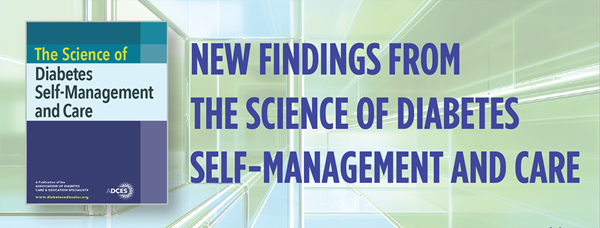New Study Shows Telehealth Cooking Classes Can Improve A1C in Veterans
Oct 4, 2021, 12:48 PM
By Lisa Letourneau-Freiberg, MPH, RD, LDN
Diabetes care and education specialists provide innovative ways to address many self-management behaviors, including healthy eating. Cooking classes are a great way to engage individuals but may present challenges such as a need for highly skilled instructors and spaces with significant cooking equipment. A recent study has shown how to overcome these obstacles with documented A1C improvement in veterans with type 2 diabetes.
Cooking classes have long offered a fun and informative way for those with diabetes to gain practical experience in cooking and balanced eating. For veterans with type 2 diabetes, cooking classes may be especially beneficial as during active duty there is an increased reliance on meal, ready-to-eat (MRE) field rations and meals prepared by dining facility staff. This may lead to a lack of a development of cooking skills.
Cooking classes can be difficult to sustain from a diabetes self-management education and support (DSMES) perspective. They are often taught by highly skilled registered dietitian nutritionists (RDN) who are also certified diabetes care and education specialists (CDCES). Sending an RD, CDCES to multiple sites to conduct the class, or hiring multiple RD, CDCES to teach these classes would be high impact but may not be financially feasible. In addition, cooking classes traditionally contain a hands-on component, which requires special equipment ranging from knives and cutting boards to larger equipment such as cooktops or ovens.
In a recent study published in The Science of Diabetes Self-Management and Care, Cross and colleagues examined change in A1C when providing DSMES via cooking classes to veterans with type 2 diabetes. The cooking classes were provided either at a main center or via telehealth at a satellite center. The main class was taught by an RD, CDCES while the satellite center classes were supported by other staff. Some of the classes were hands-on where patients actively participated in cooking, while others were demonstration only without any active participation by patients. The authors compared A1C values in 367 veterans with type 2 diabetes, age 18-79 years old, who participated in cooking classes from 2013-2018. They identified a significant sustained improvement in A1C regardless of program site (main vs satellite). Class format, hands-on compared to demonstration only, did not impact A1C; A1C improved over time regardless of format. They concluded that their cooking class program is an effective way to delivery DSMES in either an in-person (main site) or telehealth (satellite) setting, and that both hands-on and demonstration only classes are valuable.
As the authors of this study note, it is unclear whether these results would be generalizable to other populations. However, the study should inspire us to think more broadly about creative ways to continue to deliver engaging, enjoyable and effective nutrition-focused DSMES, particularly as we live through the COVID-19 pandemic. Practical tips may include things such as:
- Assessing (or re-assessing) food security and food access as some patients may have experienced a change in this during the COVID-19 pandemic.
- Delivering nutrition-focused group DSMES in-person with a few appropriately masked/socially distanced patients while also providing 2-way interaction to a group in a satellite location (or multiple satellite locations) to maximize reach from highly specialized staff such as RD, CDCES.
- Using both hands-on and demonstration-only classes to decrease equipment burden.
- Delivering cooking classes direct to patients in their homes via telehealth, perhaps even providing the necessary foods for that class to the patient as an incentive to participating.
For more tips on utilizing telehealth, visit DiabetesEducator.org/Telehealth.

Reference
Cross, S., Kurmas, N., Byrne, C., Julius, M., Burant, C., Utech, A., & Aoun, A. (2021). Diabetes Self-Management Education Support Healthy Teaching Kitchen Cooking Classes Delivered Using a Telehealth Technology. The Science of Diabetes Self-Management and Care, 47(3), 199–206. https://doi.org/10.1177/26350106211004887
ADCES Perspectives on Diabetes Care
The Association of Diabetes Care & Education Specialists Perspectives on Diabetes Care covers diabetes, prediabetes and other cardiometabolic conditions. Not all views expressed reflect the official position of the Association of Diabetes Care & Education Specialists.
Copyright is owned or held by the Association of Diabetes Care & Education Specialists and all rights are reserved. Permission is granted, at no cost and without need for further request, to link to, quote, excerpt or reprint from these stories in any medium as long as no text is altered, and proper attribution is made to the Association of Diabetes Care & Education Specialists.
HEALTHCARE DISCLAIMER: This site and its services do not constitute the practice of medical advice, diagnosis or treatment. Always talk to your diabetes care and education specialist or healthcare provider for diagnosis and treatment, including your specific medical needs. If you have or suspect that you have a medical problem or condition, please contact a qualified health care professional immediately. To find a diabetes care and education specialist near you, visit DiabetesEducator.org/Find.